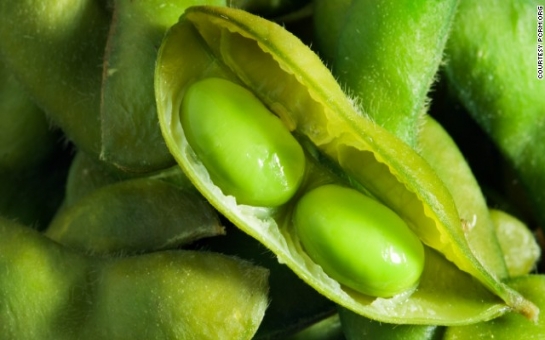New research suggests eating a vegetarian diet could help combat this deadly disease.A healthy blood pressure is 120/80 mm HG. Previous studies have shown that each increase of 20/10 mm Hg in that number doubles the patient's risk of cardiovascular disease. But lowering that top number just 5 mm HG can reduce your chances of dying from cardiovascular disease by about 7%. And eating more fruits and vegetables may be a good way to do that, according to the new study, published Monday in the scientific journal JAMA Internal Medicine.Terms to knowSystolic blood pressure - the top number on your BP reading - measures the pressure in your arteries when your heart muscle contracts, or beats.Diastolic blood pressure - the bottom number on your BP reading - measures the pressure in your arteries when your heart is still and refilling with blood.The studyResearchers analyzed data from seven previously published clinical trials and 32 observational studies. A total of 311 participants were involved in the clinical trials. More than 21,000 participants were assessed in the observational studies.The researchers only used data from studies that examined the association between a vegetarian diet and blood pressure. A range of diets were studied, including semivegetarian, vegan, lacto-vegetarian, ovo-vegetarian and pesco-vegetarian.The resultsIn the seven clinical trials, participants following a vegetarian diet had a systolic blood pressure that was 4.8 mm Hg lower on average than their omnivore counterparts'. The vegetarians' diastolic blood pressure was lower by an average of 2.2 mm Hg.In the observational studies, the difference was slightly bigger. A vegetarian diet was associated with an average decrease of 6.9 mm Hg for systolic blood pressure and 4.7 mm HG for diastolic blood pressure.Why?Many factors could be affecting the vegetarians' blood pressure. Vegetarian diets are often lower in sodium and saturated fats, while being higher in fiber and potassium.Vegetarians also tend to have lower body mass indexes because fruits and vegetables are less energy dense - meaning you can eat more of them for fewer calories.Study limitationsThe definition of a "vegetarian diet" differs from person to person, so the researchers can't tell you how much meat is too much. Some of the observational studies also did not adjust for lifestyle factors such as exercise or alcohol intake that could have affected the results.Two of the researchers are affiliated with the Physicians Committee for Responsible Medicine, which advocates for plant-based diets.TakeawayEating more fruits and vegetables as part of an overall healthy diet could help lower your blood pressure, says study author Dr. Neal Barnard. You should also try to limit your sodium intake, exercise regularly and avoid drinking alcohol excessively.(CNN)ANN.Az
Vegetarian diet may lower your blood pressure
Society
22:29 | 27.02.2014

Vegetarian diet may lower your blood pressure
Nearly a third of American adults have high blood pressure, also known as hypertension. Often called the "silent killer" because it provides few warning signs, hypertension increases a patient's risk for heart attack and stroke.
Follow us !










